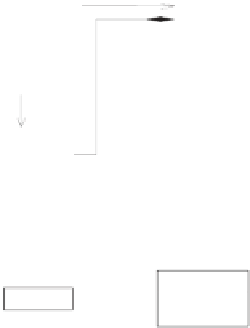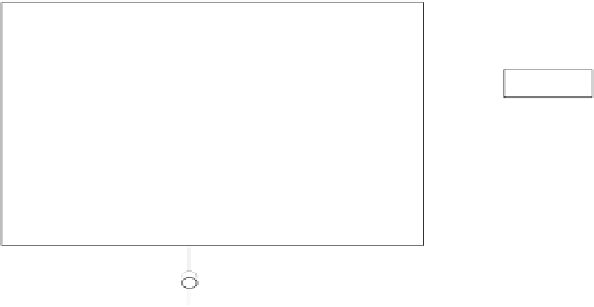Information Technology Reference
In-Depth Information
identified components. This then transforms the model of the use case contracts
into a logical component architecture as shown in Fig. 11. The rCOS specification
of the refined component
SalesHandler
can be given as
component
SalesHandler
required interface
ClockIf
{
date()
}
required interface
BankIf
{
authorize(..)
}
required interface
StoreIf
{
update(..), find (..), addSale(..)
}
provided interface
SaleIf
}
protocol
{
( [ ?enableExpress ( ?startSale (?enterItem)
(
max
)
? finishSale ?cashPay)
∗
|
{
startSale, enterItem, finishSale , cashPay, cardPay
?disableExpress ( ?startSale (?enterItem)
∗
? finishSale
[?cardPay
?cashPay ] )
∗
])
∗
|
}
class
Cashdesk
implements
SaleIf
This notation thus combines aspects of an rCOS
component
(provided/required
interface and class implementing the provided methods) and
contract
(proto-
col). Call-ins in the protocol are indicated by a question mark. A
process
can be
recognized by a protocol which starts with a call-out, denoted by an exclama-
tion mark following the method name. Further decomposition of the component
Inventory
into the three layer architecture consisting of
Application
,
data representation component
Store
and
Database
is shown in Fig. 12.
Notice that in the logical component models, interfaces are object-oriented inter-
faces, meaning that the interactions are through direct object method invocations.
Detailed Design.
In the detailed design, refinement translates the specifica-
tions in the logical design into an object-based programming language resembling
Java. In this step, class decomposition, refactoring [12] and data encapsulation,
that proved as refinement rules in the object-oriented rCOS [14], can be applied.
enableExpress( )
disableExpress( )
startSale( )
enterItem(Long,Long)
finishSale( )
cashPay(Double,Double)
cardPay(Card)
<<
Light
>>
CheckOutIf
LightIf
<<
SalesHandler
>>
:CashDesk
mode: String
enableExpress( )
disableExpress( )
startSale( )
enterItem( )
finishSale( )
cashPay( )
cardPay( )
sale
1
1
:Sale
complete: Boolean
total: Double
date: Date
date( )
1
<<
Clock
>>
1
0..1
pay
:Payment
valid( )
1
line
<<
Bank
>>
*
:CashPa
y
ment
amount: Double
change: Double
:LineItem
barcode: Long
quantity: Long
subtotal: Double
:CardPa
y
ment
card: Card
lines
*
CashDeskIf
OrderIf
<<
Inventory
>>
SupplierIf
:Item
barcode: Long
price. Double
amount: Long
cat
ManageIf
:Store
<<Supplier>>
1
*
Fig. 11.
The logical component-based model



































































Search WWH ::

Custom Search